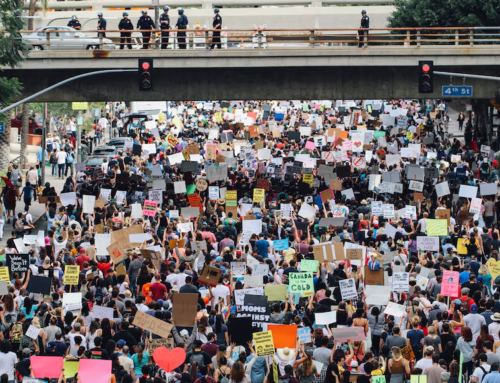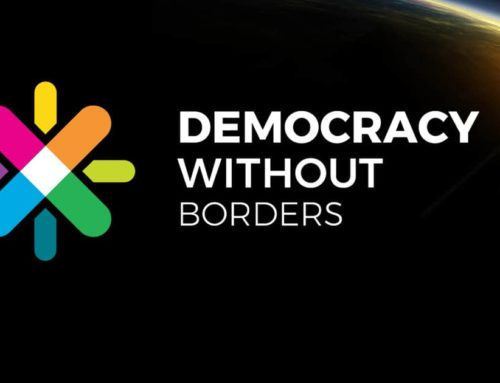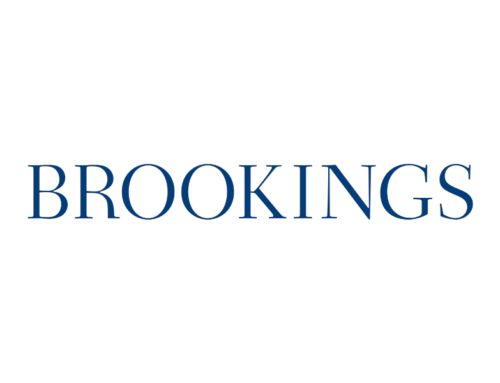23 December 2021
McDonald Lewanika, Accountability Lab and Shaazka Beyerle, TraCCC (Terrorism, Transnational Crime and Corruption Center), George Mason University
As democracy, accountability, and civic space regress worldwide, people power is proving to be a stalwart of positive change. The Summit for Democracy (S4D), which took place December 9-10 2021, officially launched with a call to action around democracy, anti-corruption, and human rights. But too often, government commitments at the international level do not lead to change for citizens. How can the S4D process be different? At a pre-S4D civil society session organized by the Accountability Lab and TraCCC (Terrorism, Transnational Crime, and Corruption Center) at George Mason University, we triangulated activist insights, donor perspectives, and recent research to outline how grassroots nonviolent action is essential for the successful operationalization of S4D commitments; and how international actors can best support homegrown civic initiatives to impact corruption, attain or enhance democracy, and improve human rights. Nonviolent action is the process by which people power is wielded through social, economic, political, and psychological pressure exerted by significant numbers of organized individuals – with shared grievances and goals – using a variety of tactics.
These civilian-based methods to fight oppression and injustice have proved to be the bulwark of democracy on multiple levels. Sustainable democracy requires a redistribution of power, mainly because the intransigent are not easily persuaded to change their ways. People power can incentivize governments to respond to citizens and serve as a check to those with authority. Consequently, nonviolent action can provide a model for change and civic initiatives can generate alternative approaches to reform because they derive from people rather than formal NGOs or governments possessing limited public trust.
Such locally-led efforts also yield rich lessons and demonstration effects for others. For example, the translocal nature of grassroots movements in Uganda has led to increased citizen participation and oversight of school renovation projects. The Ndlovu Youth Choir in South Africa has educated and inspired others to innovate, implementing WHO safety guidelines in local languages and mitigating the spread of the COVID-19 pandemic. In 2014, Le Balai Citoyen (Citizen’s Broom), anchored by popular culture and artivists, led a movement to ouster the corrupt Blaise Compaore regime in Burkina Faso. Today, the country’s citizens continue to leverage people power to hold the state accountable for failing to deliver on the movement’s democratic and socio-economic aspirations, buoyed by the remembrance that they are the ones that transformed the country in 2014.
Homegrown nonviolent action initiatives are essential for democratization and reform. Abigail Bellows, Deputy for Policy on USAID’s Anti-Corruption Task Force, observed that even when governments commit to reforms, “we still need civic actors to push for and see through their implementation through the whole life cycle of reform and change.” But how should donors and other external stakeholders provide constructive support? Based on U.S. Institute of Peace research and researcher-practitioners in Guatemala, Kenya, Myanmar, Nigeria, Ukraine, and Zimbabwe, there are four key takeaways for external actors. First, nonviolent action can manifest in various ways beyond social movements, from campaigns to local community-based initiatives and social audits. Indeed, mobilization involves hundreds of people power tactics beyond protests. Second, civil society is more than technocratic NGOs. People power protagonists include informal groups, unions, professional associations, alliances, and coalitions of societal actors. Third, it does no good to box civil society actors and groups into narrow thematic categories. On the ground, democratization, anti-corruption, human rights, equitable development, and sustainable peace are all linked. Lastly, power redistribution between donors and civil society recipients is only possible when civil society are in the driver’s seat.
Consequently, we need a new paradigm of international support for nonviolent action, including to achieve S4D commitments during the next year of action and beyond. This process begins with honoring indigenous expertise and knowledge systems and placing local organizations and movements at the forefront of the process. Context, as they say, is king, and locals best understand the challenges. Fred Bauma, a democracy activist and member of LUCHA (La Lutte pour le Changement/Struggle for Change) in the Democratic Republic of Congo, pointed out that when constitutions and laws are flouted, “social movements are the last protector of democracy.” Grassroots nonviolent movements, stated Margaret Mliwa, Program Officer for Eastern Africa at the Ford Foundation, are often at “the tipping point where transformational change occurs,” and thus well placed to develop, rather than simply implement external actor interventions. Just before the S4D, philanthropy representatives Baranshamaje and Sims distilled three lessons for donors: support diverse and proximate (local) groups through flexible resources and blended approaches to peacebuilding and civic action rather than prescriptive modes of assistance; fund action research that bolsters campaigns and empowers the “underdogs” (nonviolent action groups); and encourage membership-based NGOs to embrace a movement mentality their approaches and operations.
Accountability Lab, a network of translocal labs, has been experimenting with this movement mentality by explicitly stating its intentions to build a global movement around integrity. While not a social movement in the conventional sense, it has used its Accountability Incubator and Arts 4 Change projects to bridge the gap between funders and movements, community organizations, artists, and activists. Donors and external actors can do more to enable such field-building and bridge-building initiatives- that create opportunities for nonviolent actors on the ground to access spaces for engagement like the S4D, as well as financial and non-financial resources. Initiatives announced by the Biden administration, such as USAID’s Powered by the People, are significant steps in the right direction. Among its priorities are to “empower citizen movements – especially peaceful mass movements striving for democratic objectives.” Inclusion is key to these approaches. Mliwa asserted during the session that representation is a critical element of any struggle for democracy and should aim to carry along marginalized and underserved voices like youth, women, and people with disabilities to ensure that no one is left behind. USAID’s new initiative also includes help to “improve the efficacy of collective action by strengthening these movements’ connections with each other, as well as access to expertise and resources from multilateral institutions, donors, researchers, and civic actors, including youth, women, and LGBTQI+-led movements and organizations.”
The S4D brought together a diverse selection of societal representatives, including political leaders, civil society actors, and private sector decision-makers. To pursue a proactive agenda for democratic renewal over the next year, this collection of actors must consolidate into coalitions for change. The moment calls for unusual partnerships to tackle the complexity of threats and challenges posed by resurgent authoritarianism, shrinking civic space, local and transnational corruption, and human rights abuses. Donors can play a role to broker these relationships, or at the very least, support their pursuit.
Dr. McDonald Lewanika is the Chief of Party of Accountability Lab Zimbabwe, and has a long history working with social movements as the former head of the Crisis Coalition in Zimbabwe.
Shaazka Beyerle is a Senior Fellow, TraCCC (Terrorism, Transnational Crime and Corruption Center), George Mason University, and author of “Curtailing Corruption: People Power for Accountability and Justice” and “Freedom from Corruption: A Handbook for People Power.”




